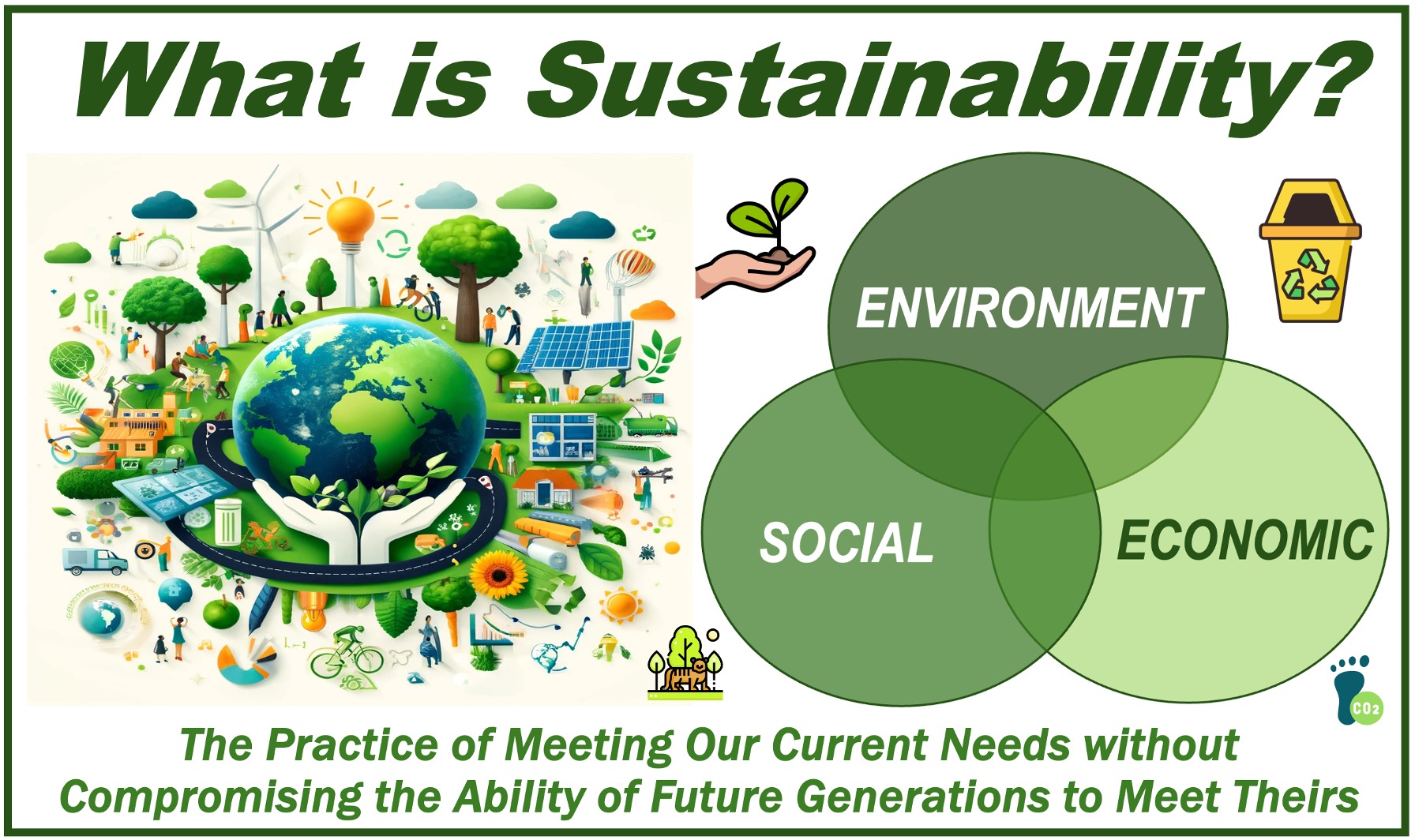What is Sustainability?
Sustainability is all about being able to maintain or continue a defined behavior or practice indefinitely. It is a way of living or doing business in a way that meets our current needs while ensuring the ability of future generations to meet their own.
When we hear the word “sustainability,” we tend to think of environmental conservation or protection. However, the meaning covers more than saving resources or reducing carbon footprints.
According to McGill University in Montreal, Quebec, Canada, there are three dimensions of sustainability – environmental, social, and economic. This is what it says about the economic dimension (PDF):
“Economic sustainability is the ability of human communities around the world to maintain their independence and have access to the resources required to meet their needs, meaning that secure sources of livelihood are available to everyone.”
Sustainable Practices and Environmental Protection
Sustainability is fundamentally about choices and actions that conserve the natural world. There is a strong emphasis on ensuring that the environment remains capable of sustaining human life.
If you agree that we should take what we need now without jeopardizing the potential for people in the future to meet their needs, sustainability is a priority for you.
Achieving sustainability means responsibly using resources today to secure a healthy future for all.

The importance of sustainability
Our planet, from a human perspective, faces a number of challenges, including:
The burning of fossil fuels – coal, oil, and gas – releases greenhouse gases, leading to global warming and a greater incidence of droughts, hurricanes, and other extreme weather events.
-
Resource Depletion
Since the Industrial Revolution, we have been using up the Earth’s natural resources, such as forests, water, and minerals, at an accelerating rate. Today, we are consuming them much faster than they can replenish.
Waste and pollution of the air, land, sea, rivers, and lakes damage our ecosystems and harm our health.
-
Social Inequality
Across the world, many people do not have access to essentials like food, clean water, education, decent housing, or health services. Sustainability aims to tackle these issues by considering the long-term consequences of our actions.
For example, when developing new farming methods, we must prioritize not only increased production but also making food more accessible and affordable for all.
Pillars of Sustainability
Sustainability rests on three interconnected pillars:
-
Environmental
We need to reduce pollution, conserve biodiversity, wisely use renewable resources, promote energy efficiency, and protect natural habitats.
-
Economic
Our economy needs to be stable and healthy – one that provides jobs and opportunities for all of us.
-
Social
We need strong communities with equitable access to resources, food, clean water, decent housing, education, and healthcare.
What Can We Do?
We can all do something to support sustainability. For example:
-
Reduce, Reuse, Recycle
Waste less, reuse items, and recycle materials.
-
Conserve Energy
Turn off lights, use energy-efficient appliances, and choose renewable energy options when possible.
-
Support Sustainable Businesses
Purchase items from companies that are committed to reducing their environmental impact and promoting social responsibility.
-
Get Involved
Support organizations and initiatives promoting sustainability in your community and around the world.
-
Sustainable Transportation
Opt for walking, cycling, carpooling, or public transportation to reduce your carbon footprint.
-
Water Conservation
Fix leaks, take shorter showers, and install water-efficient fixtures to minimize water waste.
-
Choose Local and Seasonal Foods
By choosing local and seasonal foods, we support nearby farmers and minimize the environmental impact from long-distance transport of produce.
-
Invest in Renewable Energy
If possible, install solar panels or invest in green energy projects, such as wind turbines, hydroelectric power, geothermal systems, or bioenergy facilities.
Final thoughts
Sustainability is becoming an increasingly important consideration for policymakers and consumers.
Sustainability involves implementing changes that affect both our individual lives and the entire world. It’s about creating a sustainable future where we can all enjoy a high quality of life without exceeding Earth’s ecological boundaries.
It is a responsibility for all of us today and for generations to come.

